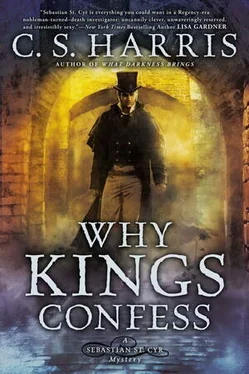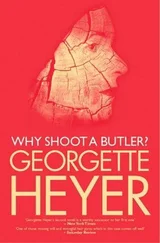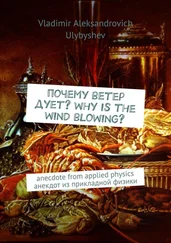C. Harris - Why Kings Confess
Здесь есть возможность читать онлайн «C. Harris - Why Kings Confess» весь текст электронной книги совершенно бесплатно (целиком полную версию без сокращений). В некоторых случаях можно слушать аудио, скачать через торрент в формате fb2 и присутствует краткое содержание. Год выпуска: 2014, Издательство: Penguin Group US, Жанр: Исторический детектив, на английском языке. Описание произведения, (предисловие) а так же отзывы посетителей доступны на портале библиотеки ЛибКат.
- Название:Why Kings Confess
- Автор:
- Издательство:Penguin Group US
- Жанр:
- Год:2014
- ISBN:нет данных
- Рейтинг книги:5 / 5. Голосов: 1
-
Избранное:Добавить в избранное
- Отзывы:
-
Ваша оценка:
- 100
- 1
- 2
- 3
- 4
- 5
Why Kings Confess: краткое содержание, описание и аннотация
Предлагаем к чтению аннотацию, описание, краткое содержание или предисловие (зависит от того, что написал сам автор книги «Why Kings Confess»). Если вы не нашли необходимую информацию о книге — напишите в комментариях, мы постараемся отыскать её.
Why Kings Confess — читать онлайн бесплатно полную книгу (весь текст) целиком
Ниже представлен текст книги, разбитый по страницам. Система сохранения места последней прочитанной страницы, позволяет с удобством читать онлайн бесплатно книгу «Why Kings Confess», без необходимости каждый раз заново искать на чём Вы остановились. Поставьте закладку, и сможете в любой момент перейти на страницу, на которой закончили чтение.
Интервал:
Закладка:
Sebastian said, “What can you tell me about him? You say your wife knew him in Paris?”
Radcliff seemed to rouse himself from his brown study. “She did, yes. They grew up next door to each other on the Ile de la Cite. His father is still a prominent physician at the Hotel-Dieu or some such place.”
“Oh?”
Radcliff frowned. “I seem to recall hearing about a dustup of some sort or another involving the father, but it was years ago. Something to do with the royal family during the Terror. I couldn’t tell you exactly what.”
“What do you know of Damion Pelletan’s politics?”
“Politics?” Radcliff shook his head. “I had the impression Pelletan had no interest in politics. His passion was medicine.”
It struck Sebastian as more than a little strange that someone with no interest in politics would join a peace delegation, even if simply in the capacity of a physician. But all he said was, “When was the last time you saw him?”
Radcliff took a slow, deliberate sip of his brandy, as if carefully considering his response. “I don’t recall, precisely. A week ago, perhaps? Maybe more.”
“Not last Thursday night?” asked Sebastian, thinking of the unidentified man and woman who had visited Pelletan at the Gifford Arms the night of his death.
Radcliff froze with his glass suspended just above the table. All traces of easygoing bonhomie had vanished, leaving him looking mulish and vaguely sulky. “No; not Thursday night. I spent Thursday night at home alone with my wife.”
“All night?”
“Yes, damn you.”
Sebastian thrust out his legs to cross his boots at the ankles. “You say you attended Pelletan’s funeral for the sake of your wife. Is she distressed by his death?”
“Of course she is. What do you expect? They were old friends.”
“Yet, having put in an appearance at her childhood friend’s funeral, you didn’t feel the need to return home and comfort her?”
Angry color mottled Radcliff’s cheeks. “What the bloody hell do you mean to imply by that?”
“Have you by any chance heard precisely how Damion Pelletan was killed?”
A faint wariness crept over the other man’s features. “I assumed he was bludgeoned to death. That’s what footpads normally do, is it not?”
“Actually, he was stabbed in the back with a dagger. Then the killer-or killers- dragged his body into a noisome passage and cut out his heart.”
Something flared in the other man’s eyes, something quickly hidden by his lowered lids.
Sebastian watched him closely. “Do you have any idea why someone would want to do that? It seems rather symbolic, don’t you think? To rip a man’s heart from his chest.”
For one fierce moment, Radcliff’s gaze met his.
Then he slammed his unfinished brandy on the table and thrust up to stride quickly from the coffeehouse, the amber liquid in the glass sloshing violently back and forth until, at last, it stilled.
• • •
Half an hour later, Sebastian arrived at Tower Hill to find Paul Gibson seated on the wooden chair at the injured woman’s bedside, his elbows propped on his splayed knees, his chin in his hands. A basin with a cloth stood on a nearby table, its surface splashed dark with spilled water. He raised his head at Sebastian’s entrance but did not stand. In the bed, the woman lay terribly still, her eyes closed. Sweat glistened on her white forehead and drenched the flame red hair dark at the temples.
“How is she?” Sebastian asked quietly.
Gibson shook his head and let out a long, strained breath. “She’s delirious. I’m afraid her fever is climbing.”
“From the chill she took the night of the murder? Or from her injury?”
“There’s no way to tell.” He raked the disheveled hair from his face, then linked his fingers behind his neck to arch his back in a stretch. “I asked one of my colleagues at St. Bartholomew’s-Dr. Lothan-to stop by and have a look at her. He wanted to blister her, bleed her, and purge her-the usual panoply of ‘heroic’ medicine.”
“Did you let him?”
“No. I swear I’ve seen more men killed by bloodletting and purging than by cannon- and musket balls combined. I thanked him for his advice and showed him out. But ever since, I’ve been sitting here wondering if I shouldn’t at least have let him try it. I mean, I’m just a simple surgeon. I can set your broken arm or cut off your mangled leg, and if you’re game I might even undertake to cut out your kidney stones. But I’m no physician. I never went to Oxford or Cambridge; my Latin is abysmal, my Greek nonexistent, and the one time I tried to read Galen I gave it up after a few pages. Who am I to question a medical tradition that’s endured for more than two thousand years?”
“I don’t think you give yourself enough credit. You know more about the human body than any physician I’ve ever met.”
Gibson gave a ragged laugh. “If you’re dead.” Reaching out, he squeezed the cloth over the basin and began again to bathe the woman’s face.
“Has she said anything more?” Sebastian asked, going to stand at the foot of the bed.
Gibson had reduced the size of the bandage on the woman’s head, so that Sebastian had his first good look at her. She was an attractive woman, in her late twenties or early thirties, with milky white skin faintly dusted with cinnamon across her high-bridged nose. Her eyes were closed, but Sebastian knew what color they would be if they were open: a deep, loamy brown.
“Nothing coherent,” said Gibson. But then he must have sensed the subtle shift in Sebastian’s posture, or perhaps a sudden charge in the air, because he turned to look at Sebastian. “What is it?”
Sebastian kept his gaze on the woman. “I’ve met her before.”
“You have? Where?”
“Portugal. Her name was Alexandrie Beauclerc then. The last time I saw her, she swore that if our paths ever crossed again, she would kill me.”
Chapter 18
T he inrushing tide brought with it all the familiar, evocative scents of the distant sea and a cold, briny mist that wet Sebastian’s cheeks and beaded like unshed tears on the ends of his lashes.
He stood on the ragged, unfinished arc of the new stone bridge that would someday span the Thames. The river was a foam-flecked turgid rush far below, the city quieting and slowly sinking into darkness around him. He found himself unconsciously rubbing his wrists, where the old scars still showed as white lines against his skin. He’d thought in his confident naivete that he was somehow coming to terms with those events of three years ago. But he realized now that he’d simply fallen victim to a comfortable illusion wrought by the passage of time and the joy an unexpected, enduring love could bring.
He tried to focus on the swirling black waters of the river below. But what he saw instead were soul-destroying images from a different time, a different place. And as he turned toward shore, he could have sworn he caught the distant echo of children’s laughter and the faint scent of orange blossoms overlain by the heavy stench of old blood.
• • •
Some hours later, Hero paused in the doorway to the darkened library. The soft light from the streetlamp fell through the open curtains to show her the man who stood with his back to the room, his gaze on the empty street beyond. She could feel the intensity of the tension thrumming through him, see it in every line of his tall, lean body.
She’d moved quietly, but of course he heard her. Even after six months of living with this man, she still found the acuity of his senses disconcerting. He turned his head to look at her over his shoulder, and a humming silence stretched out between them.
Читать дальшеИнтервал:
Закладка:
Похожие книги на «Why Kings Confess»
Представляем Вашему вниманию похожие книги на «Why Kings Confess» списком для выбора. Мы отобрали схожую по названию и смыслу литературу в надежде предоставить читателям больше вариантов отыскать новые, интересные, ещё непрочитанные произведения.
Обсуждение, отзывы о книге «Why Kings Confess» и просто собственные мнения читателей. Оставьте ваши комментарии, напишите, что Вы думаете о произведении, его смысле или главных героях. Укажите что конкретно понравилось, а что нет, и почему Вы так считаете.












